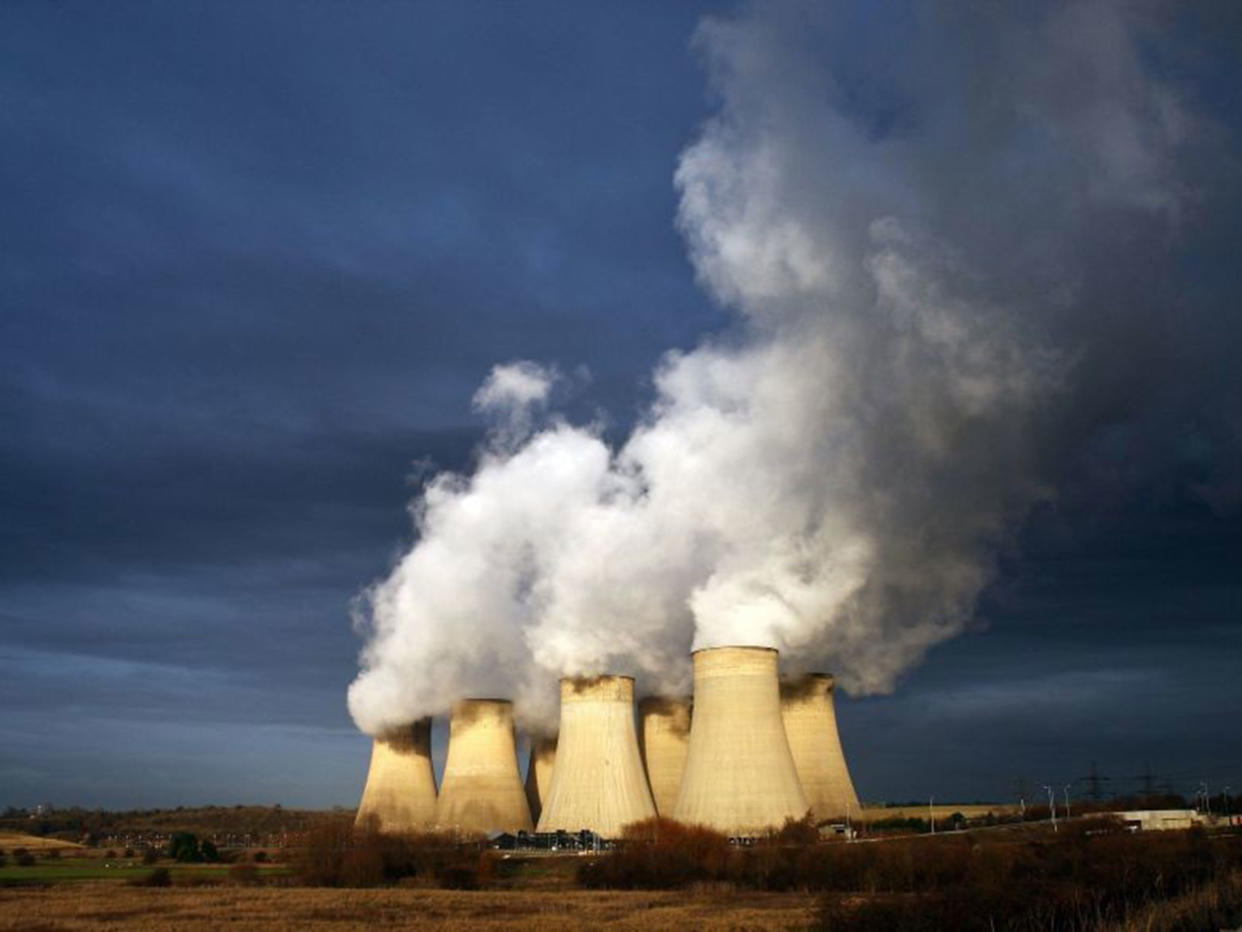UK greenhouse gases now 42% lower than they were in 1990

UK greenhouse gas emissions are now 42 per cent lower than they were in 1990, according to new Government figures.
There was a six per cent drop from 2015 to 2016 due to a dramatic decline in the use of coal to make electricity, the Department for Business, Energy & Industrial Strategy (BEIS) reported.
Environmentalists described the figures as “heartening” but warned the good progress in the electricity sector was not being seen in transport and the heating of buildings.
BEIS said in a statement: “The UK is making significant progress in reducing harmful carbon emissions while successfully growing the economy.
“Today’s provisional figures show we are halfway to meeting our 2050 target for greenhouse gases reduction, with emissions 42 per cent lower today than in 1990.”
Electricity generation saw a decline of 54 per cent in carbon dioxide emissions compared to 1990, but those from transport have actually increased, albeit by just one per cent. Residential emissions have fallen by 15 per cent.
However the UK is currently not on track to meet targets to reduce emissions for the late 2020s and early 2030.
And the Government has repeatedly delayed publication of its Clean Growth Plan, also known as its Emissions Reduction Plan, the key document which is supposed to spell out how these targets will be met.
Gareth Redmond-King, head of climate and energy at WWF, called on the Government to come up with some new ideas.
“It’s heartening to see the UK’s carbon emissions continue to fall, demonstrating that it’s possible to cut emissions and build a productive economy,” he said.
“Most of this fall is thanks to a big reduction in the use of coal to generate electricity, but the lack of progress on buildings and transport is deeply worrying.
“The Government’s forthcoming plan to reduce emissions, the Clean Growth Plan, will need to propose new policies in these areas as well as confirming its pledge to phase out coal if we are to meet our much need climate obligations.”
The Government has said it plans to phase out “unabated coal” by 2025, but has not defined what it means by “unabated”. This is the subject of a public consultation.
So it could mean coal will only be allowed if all the associated emissions are captured, but could also mean coal plants will be allowed to operate while capturing virtually nothing.

 Yahoo News
Yahoo News 
